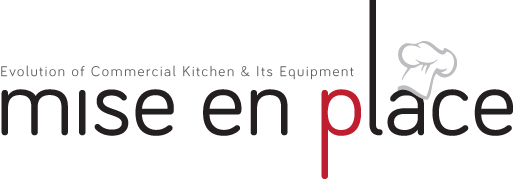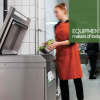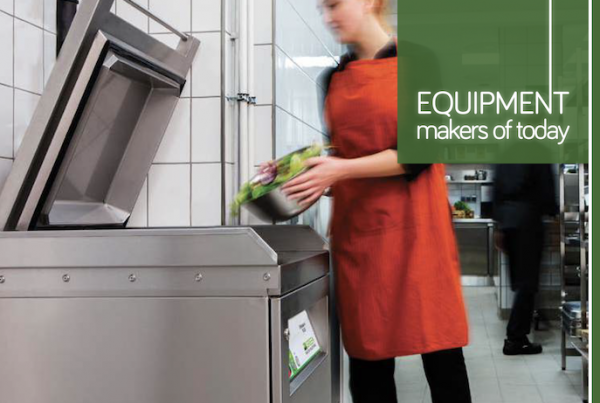 For many around the world, staying indoors is now an everyday activity – whether we are working from home (the now infamous WFH), getting basic essentials via online shopping or ordering food from the many delivery service providers out there. With technology we have today, one can easily get everything done within the strict compliance enforced by governments without having to venture out. Our homes have become a safe haven as we hide from the virus but there are some arguments to that – safety is at stake when the environment within your home is not well circulated.
For many around the world, staying indoors is now an everyday activity – whether we are working from home (the now infamous WFH), getting basic essentials via online shopping or ordering food from the many delivery service providers out there. With technology we have today, one can easily get everything done within the strict compliance enforced by governments without having to venture out. Our homes have become a safe haven as we hide from the virus but there are some arguments to that – safety is at stake when the environment within your home is not well circulated.
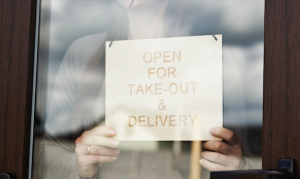
The norm for most businesses where takeouts and deliveries kept everyone indoors.
The argument to go outside for fresh air during lockdowns or restricted movement have been just as loud as the authority’s reminder for everyone to stay home to flatten the curve. And with the love that Asians have for air conditioning, this gives the outdoor warriors a point in the argument.
But it has been more than 7 weeks for some countries with some even longer that many countries are now coming up with plans on reopening businesses. Most countries have outlined a long list of SOPs for businesses to follow – social distancing, contact tracing, limiting crowd size and of course, a clean-up period before the start of businesses.

Coming out to dine in groups is a wish list for many F&B operators as businesses reopens.
Businesses in buildings that have been closed for months are now eager to welcome patrons, but do we really have the right information and data when it comes to how Covid 19 and indoor circulation play against each other? With much of Asia being a tropical climate, the use of air conditioning and the circulation of air within these structures should be looked into before we welcome patrons with open arms.
HVAC standards in many parts of the world have always been about safety from tangible hazards such as fires or even environmentally-focused but not in the prevention of spreading viruses. Most hospitals have proper rooms when it comes to isolation and contamination but with Covid 19, it has been proven that there are asymptomatic patients walking around us – an unchecked hidden time bomb.
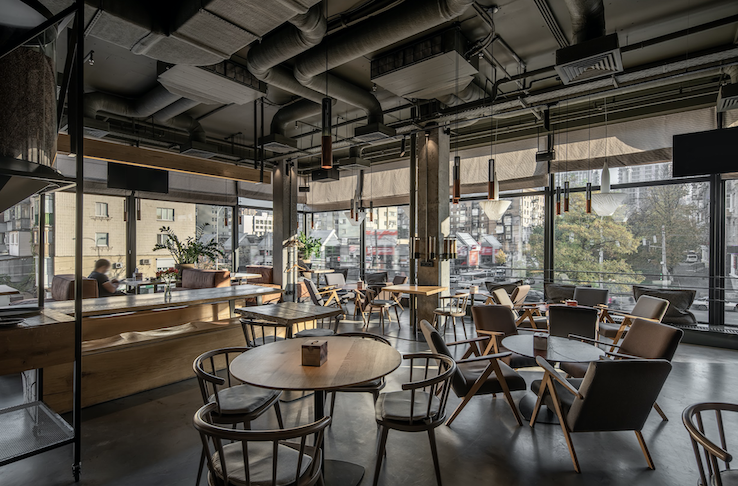
A beautiful decorated restaurant needs more than just light but well ventilated, airy and wide feeling.
There are enough highlights on the transmission of Covid -19 – making surface cleaning a compulsory activity and reducing contact of any kind among people to just a nod, or even less. As the Federation of European Heating, Ventilation and Air Conditioning Associations REHVA describes; “The size of a coronavirus particle is 80-160 nanometers, and it remains active for many hours or couple of days (unless there is specific cleaning). COVID-19 remains active up to 3 hours in indoor air and 2-3 days on room surfaces at common indoor conditions. Such small virus particles stay airborne and can travel long distances carried by airflows in the rooms or in the extract air ducts of ventilation systems. Airborne transmission has caused infections of SARS (an earlier coronavirus outbreak).”
In its studies, REHVA guidance concluded that aerosol transmission is plausible, as the virus can remain viable in aerosols for multiple hours, while another recent study that analysed super-spreading events showed that closed environments with minimal ventilation strongly contributed to a characteristically high number of secondary infections.
* https://www.greenbuildinglawupdate.com/2020/04/ articles/environmental/covid-19-and-the-risk-from-recirculated-air-in-buildings/

As we all patiently wait on information from WHO and those in authority, we spoke to Halton, a leading company on indoor air solutions to discuss if we are indeed ready to reopen with what we have and also their feedback on how to go forward. Dr. Andrey Livchak – Director, Global R&D from Halton FoodService helped us to put some things into perspective.
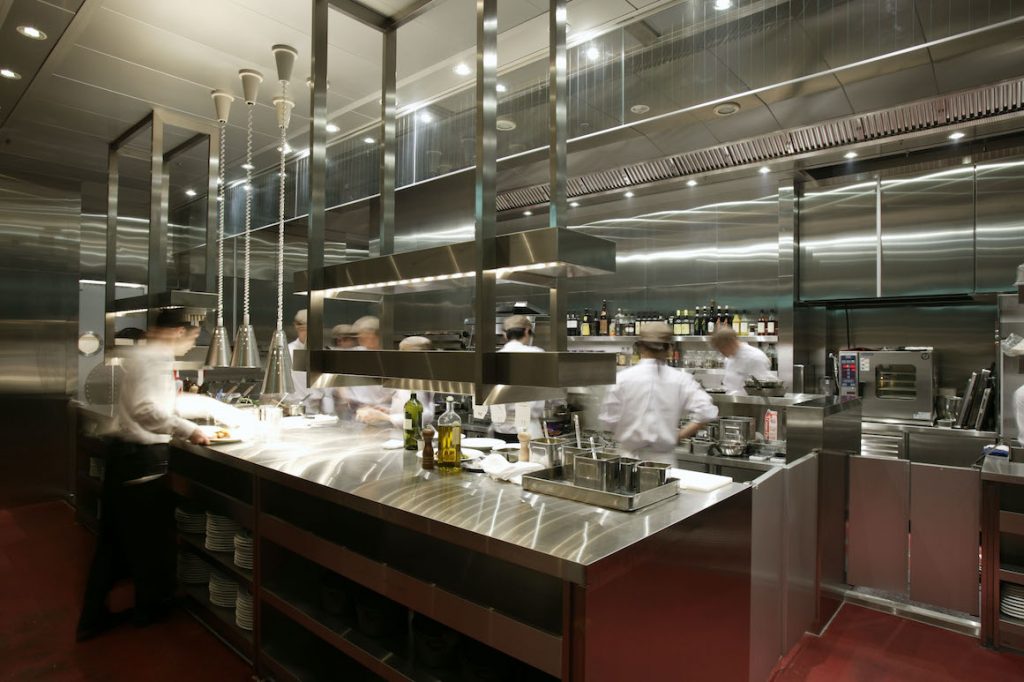
Restaurant Dazzle in the Ginza district of Japan offers their guests a complete dining experience with a showcase of their chefs in a well-lit and well ventilated kitchen. Picture courtesy of Halton.
Q: What is your first recommendation when it comes to running the ventilation of a building that has been closed for months? What should operators do first?
Idle for extended time ventilation system may have accumulated dust. Start ventilation system before you do space cleaning because dust may come out of the vents. If you detect some unusual smell coming from ventilation vents, change filter in AC unit if it is equipped with one. If after changing filters smell is still detected, order service company to clean the cooling coil in AC unit.
You can read some guidelines at ASHRAE (American Society of Heating, Refrigerating, and Air-Conditioning Engineers published guidance for buildings reopening: https://www.ashrae.org/about/news/2020/ ashrae-offers-covid-19-building-readiness-reopening-guidance
Q: What about businesses? Dining rooms have been left empty, while kitchens might have been running. How do you recommend they start?
If dining room has a separate ventilation system, same recommendations as above. If there is a common ventilation system used for both kitchen and dining room and it was used regularly, no action is needed.
Q: What can we do to build assurance of good ventilation? Additional exhaust? Blasting cool air?
You can’t add exhaust without bringing more outside air, this is the law of physics. Adding exhaust will only increase uncontrolled infiltration – unconditioned and unfiltered air coming through doors and windows. This is undesirable because it will compromise thermal comfort in space and change pressure distribution making opening or closing doors difficult. Conditioning all outside air to compensate for increased exhaust will require upgrade of the air conditioning equipment and will significantly increase energy consumption and costs to run it, especially in hot and humid climate conditions.
Sharing an example of a reported case (https:// wwwnc.cdc.gov/eid/article/26/7/20-0764_article.) where it was then misinterpreted by some parties publicly as an action to shut down ventilation instead – Dr. Livchak advises the danger if actions taken were not weighed carefully by the right experts before going ahead. “We are still learning about COVID19, but now, with big certainty, we can say that it spreads primarily through respiratory droplets produced when an infected person coughs, sneezes or even talks. Getting many people in a confined space without ventilation is a call for disaster, it will only facilitate spread of air-borne pathogens. The minimum action facility owner should take is to verify ventilation system is designed and maintained properly, outside air damper is open and brings at least minimum, governed by code, amount of outside air per person. Bringing outside air is critical because it is free from viruses,” he adds.
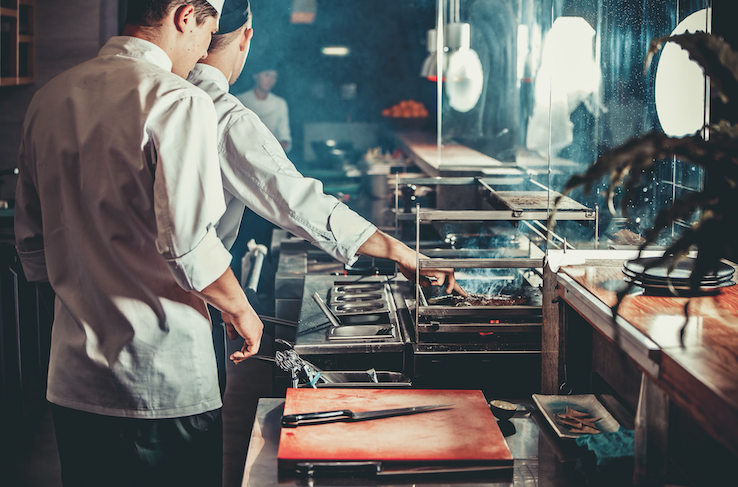
Q: Your advice for operators and building owners.
Spend your money wisely on advertised remedies from COVID19. There will be a lot of companies selling “snake oil” solutions that cost a lot but do nothing or cost very little but are harmful for people. Request test data validating performance of a product or system in your application.
Our thanks to Dr. Livchak and Halton Foodservice for their input. As we have stayed indoors, the team at Halton are actively working on efforts to better the air we breathe in a hot and humid environment which we will share in an upcoming article as we look into how our “new norm” has brought changes to the way of things and products.
So, as this writer gets ready to “enter” back into a society of contact tracing and social distancing, we hope that the air that we breathe from the new norm gets an update as well in our fight to beat this pandemic with the right solutions and help from the right professionals.
For more information, you can contact Halton at https://www.halton.com/en_MY/
href="#" data-color-override="false" data-hover-color-override="false" data-hover-text-color-override="#fff">Button Text
CONTINUING TO SERVE
THAAN CHARCOAL COOKING, BANGKOK.
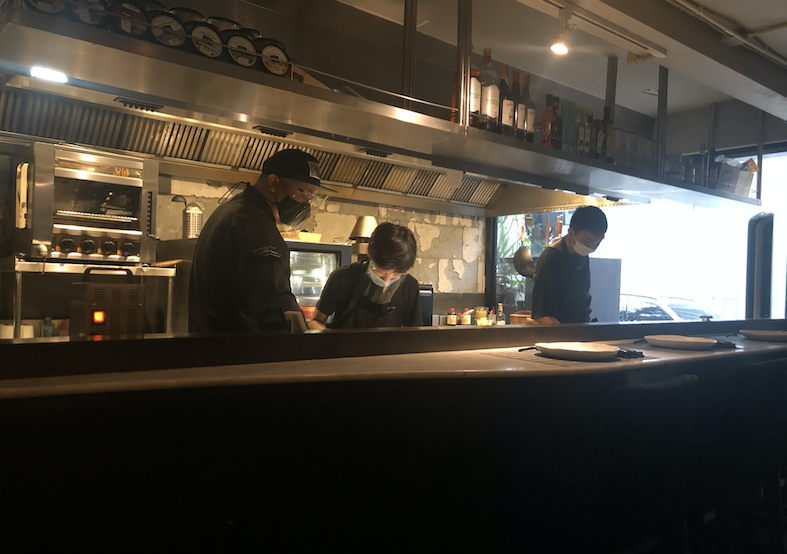
Thaan Charcoal Cooking, located in Sukhumvit 31 in Bangkok have remained opened throughout the lockdown, offering delivery and takeaway services only.
Adhering to strict hygiene protocol of masks and PPEs, deliveries were the way of business where they continued to serve their distinctive meat focused menu of grills and roasts of a unique local taste and flavour.
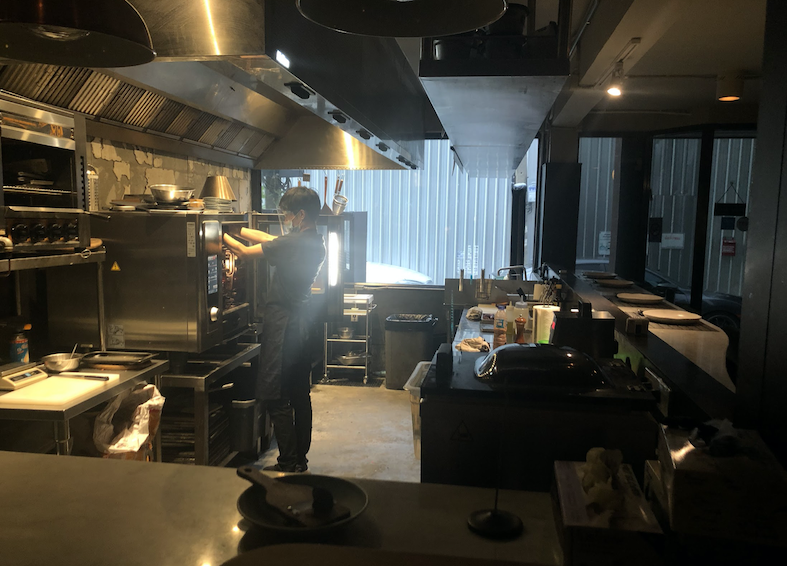 Outfitted with solutions from Halton, managing proper ventilation of their production with the Josper Grills in the small kitchen space helps, despite an empty dining room as like many restaurants during this time.
Outfitted with solutions from Halton, managing proper ventilation of their production with the Josper Grills in the small kitchen space helps, despite an empty dining room as like many restaurants during this time.
As everyone looks forward to supporting local businesses with more restrictions lifted, do add Thaan Charcoal Cooking to your list when you visit Bangkok the next time.
https://www.thaan31.com
